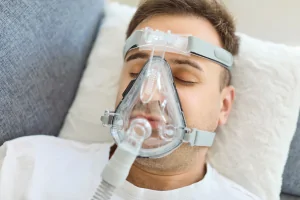Cold weather can be just as dangerous as extreme heat, especially for service members exposed to freezing environments without proper protection. From Korea to Alaska, from Fort Drum to long training exercises in winter, countless veterans have faced cold weather injuries that continue to impact their health long after discharge.
Unfortunately, many veterans don’t realize that these injuries may qualify for VA disability compensation. Leah Bucholz breaks down what cold weather injuries are, how they affect veterans, how the VA handles claims, and what you can do if you’re living with the long-term effects of cold exposure.

Table of Contents
Understanding Cold Weather Injuries
Cold weather injuries are more than just temporary discomfort. They can cause permanent, debilitating damage to tissues, nerves, and circulation. While many people have heard of frostbite, the military environment exposes service members to a range of cold-related conditions that can have lasting consequences.
The most common cold weather injuries include:
-
Frostbite – Tissue freezing that usually affects fingers, toes, ears, and the nose. In severe cases, it can lead to tissue death and even amputation.
-
Trench foot (immersion foot) – Caused by prolonged exposure to wet and cold conditions. Military medics have long emphasized the importance of keeping feet dry, because once trench foot sets in, the damage can last a lifetime.
-
Chilblains – Painful, itchy red or purple bumps on the skin caused by repeated exposure to cold, damp environments.
-
Hypothermia – A dangerous drop in core body temperature that can cause confusion, organ failure, and death if untreated.
-
Long-term cold sensitivity and neuropathy – Pain, numbness, or tingling in extremities that can persist for years, often worsening over time.
These injuries are not just “winter war stories.” They can leave veterans with nerve damage, circulatory problems, and mobility limitations that affect their daily lives permanently.
Can Veterans Receive VA Disability for Cold Weather Injuries?
The short answer is yes. Cold weather injuries can be service-connected, and the VA has an established rating system for them.
Here’s what’s important to know:
-
Current Diagnosis – To file a claim, you need a current medical diagnosis of a residual condition, such as neuropathy, cold sensitivity, circulation issues, or tissue damage.
-
In-Service Event or Exposure – You must show that your cold injury happened during service. This could mean documented frostbite treatment, training records from a cold climate, or duty assignments in harsh winter environments.
-
Nexus (Medical Link) – A medical opinion must connect your current condition to your military service. This opinion can come from a VA Compensation & Pension (C&P) exam, your treating physician, or an independent medical provider.
The VA recognizes that while frostbite itself may heal, its residuals—like amputations, chronic pain, or nerve damage—are what truly impact veterans long-term.
Challenges With Cold Weather Injury Claims
While VA disability benefits are available, getting a cold injury claim approved isn’t always easy.
Common challenges include:
-
Undocumented injuries – Many veterans never went to the medic or clinic during service. Cold exposure often occurred during training exercises, overnight patrols, or combat missions where stopping for medical help wasn’t possible.
-
Old records – Before electronic health records, incidents were often missing from long-term files. Even when care was provided, paperwork sometimes didn’t survive.
-
Stigma in service – Service members often avoided sick call to escape ridicule or to avoid looking weak in front of peers and leaders.
Even if your injury wasn’t documented at the time, you still have options. Evidence such as buddy statements from fellow service members, unit records showing duty in extreme cold, and personal statements describing your experience can strengthen your case.
How the VA Rates Cold Weather Injuries
The VA rates cold injury residuals under Diagnostic Code 7122. Each affected extremity (hands, feet, ears, nose) can receive a separate rating.
VA typically looks for symptoms such as:
-
Numbness, tingling, or burning in the extremities
-
Pain or cold sensitivity that interferes with daily living
-
Skin discoloration or nail abnormalities
-
Chronic ulcers, poor circulation, or tissue damage
-
Neuropathy confirmed by a doctor
Ratings usually range from 10% to 30% per affected limb, but combined ratings can increase significantly depending on how many body parts are affected.
In severe cases, veterans may qualify for:
-
TDIU (Total Disability based on Individual Unemployability) if the condition prevents steady employment.
-
Special Monthly Compensation (SMC) if there are amputations, significant mobility issues, or multiple severe residuals.
Research Backing Cold Weather Injury Claims
The VA and independent studies confirm that cold injuries can leave lasting damage—even decades later.
-
VA Cold Injury Protocol Study (2004): Korean War veterans exposed to extreme cold showed that over 50% experienced long-term effects such as neuropathy, cold sensitivity, and chronic pain.
-
Military Medicine Journal: Research demonstrated that even mild frostbite or immersion foot can cause long-term vascular damage, reduced healing, and functional impairment, especially after repeated exposure.
-
VA Cold Injury Residuals Guide: VA training materials state that cold injury symptoms may not appear until many years after service, and often include numbness, tingling, chronic pain, and recurring infections.
In short, medical evidence supports what veterans have reported for decades: cold weather injuries are not temporary—they can permanently change health and function.
Steps Veterans Can Take
If you suspect your current health issues are related to cold exposure in service, here’s what you should do:
-
See Your Doctor – Get a medical evaluation for symptoms such as numbness, tingling, burning, or circulation issues. Ask if they may be linked to past cold injuries.
-
Gather Service Records – Collect evidence of your duty stations, training exercises, or deployments in cold climates.
-
Write a Statement – Provide a personal account of when and where you were exposed to extreme cold, how it affected you then, and how symptoms persist today.
-
Get a Nexus Letter (if possible) – Ask your treating doctor to write an opinion stating that your condition is “at least as likely as not” related to your military service.
-
File or Re-File a Claim – If you know how to file independently, you can submit your claim. Otherwise, seek assistance from a Veterans Service Organization (VSO) such as DAV, VFW, or American Legion.
-
Seek Accredited Help – If denied, consider working with an accredited VA attorney or claims agent. You can find accredited representatives on the VA’s official website.
Why It Matters
Cold weather injuries are not just a problem of the past. Many veterans who served in Korea, Germany, Alaska, and northern U.S. bases are only now realizing that their numb toes, burning fingers, or worsening circulation may be connected to service decades ago.
The VA recognizes these injuries and provides benefits for them. Compensation not only helps with financial support but also ensures access to medical treatment and accommodations veterans need.
Final Thoughts
Cold weather injuries deserve the same recognition as any other service-related condition. Whether you experienced frostbite during field exercises, immersion foot in wet boots, or simply years of training in freezing temperatures, your health may still be impacted today.
If you are living with long-term numbness, nerve pain, or circulation problems, don’t dismiss it as just “getting older.” It could be the result of your military service—and you may qualify for VA disability compensation.
The key is to gather medical evidence, provide a clear history of your service, and, if needed, seek support from accredited professionals who can guide you through the claims process.
You served your country in harsh conditions. If cold weather left its mark on your health, you deserve the benefits you earned.
Also read: Hot Weather Injuries & VA Disability
At Prestige Veteran Medical Consulting, a veteran-owned company, we specialize in Independent Medical Opinions (IMOs) known as Nexus letters.
Our purpose is to empower YOU, the veteran, to take charge of your medical evidence and provide you with valuable educational tools and research to guide you on your journey.
Understanding the unique challenges veterans face, our commitment lies in delivering exceptional service and support.
Leveraging an extensive network of licensed independent medical professionals, all well-versed in the medical professional aspects of the VA claims process, we review the necessary medical evidence to incorporate in our reports related to your VA Disability Claim.
Prestige Veteran Medical Consulting is not a law firm, accredited claims agent, or affiliated with the Veterans Administration or Veterans Services Organizations. However, we are happy to discuss your case with your accredited VA legal professional.
















2 Responses
Hi Leah,
Thanks for the info on this page (Cold Weather Injuries & VA Disability), as well as many AWSOME YT videos that you’ve created / I’ve watched. However, somehow I overlooked the Cold Weather Injuries & VA Disability video, until I seen it on your website.
Anyway… My wife served in the Army, and was stationed in Korea (peacetime). During her tour, her unit failed to provide her extreme cold weather gear. As such, she suffered frostbite and had to have surgery on her feet at the time to have her nerves removed. Fast forward ~25 yrs later… her nerves are growing back and is extremely painful, she’s in constant pain from that foot condition, plus other foot injuries (broken toes and ankle) while in-service.
She’s not ready to file yet, as she’s trying to get her VA acct unlocked. Once she’s ready, I or her will be reaching out to your team for assistance. Note: Upon discharge, the VA rated her at 40%, and I believe she should be much higher – of course.
Thanks for your knowledge and teachings. Yes, it’s a business – but, it’s evident you have a driving passion. Best wishes on continued success.
Best Regards,
Tim McMinn
U.S. Navy, retired
80% and headed to 100% – hopefully, this year
Hey sir thank you for your kind words. Best of luck to your wife and let us know if we can help in the future